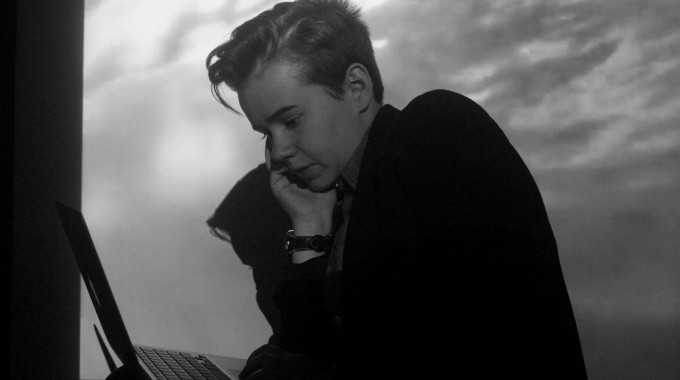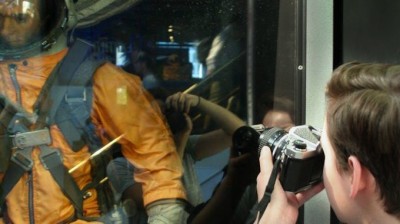If you know of a Columbia College student, faculty member, alumnus/alumna or program we should spotlight, or if you would like to submit a story, please contact:
Columbia College
Office of Communications
cc-comms@columbia.edu

“While I have continued to work on this project for my Russian senior thesis ... it is the unexpected similarities between these letters and my own that have stuck with me.” —Kate Seidel CC’17
Kate Seidel CC’17, a John Jay Scholar double-majoring in visual arts and Russian language and culture, spent a summer in Russia researching letters to Soviet cosmonauts. Here, she talks about the letters she read and the ways in which her research allowed her to grow both intellectually and personally.
This past summer, I received Columbia College funding to work on an independent research project: reading fan mail sent to Soviet cosmonauts during the early days of the space race at archives in and around Moscow, including the Archives of the Russian Academy of Sciences (ARAN), the Russian State Archive of the Economy (RGAE), the State Archive of the Russian Federation (GARF), the Russian State Archive of Socio-Political History (RGASPI), the Russian State Archive for Scientific/Technical Documentation (RGANTD), and the collections at the Unified Gagarin Memorial Museum in Gagarin, Smolensk oblast’.
From the launch of Sputnik in 1957 to the flights of the first animal (Laika in 1957), man (Yuri Gagarin in 1961), and woman (Valentina Tereshkova in 1963) in space, the successes of the Soviet space program in the late 1950s and early–mid-1960s reflected the fast pace of Russia’s modernization and, for most Soviet people and many others, a sense that their country was on the right track and allowed scientific creativity to flourish.
 Kate Seidel CC'17 and Ivan Ivanovich, a mannequin used to test the Russian Vostok spacecraft.
Reading these letters and telegrams today, most of which were never published, allows us to go beyond analyzing official cultural production surrounding the space race (newspapers, photographs, science fiction) and to see how average Soviet citizens reexamined their lives in the light of the dawning “space era.”
Kate Seidel CC'17 and Ivan Ivanovich, a mannequin used to test the Russian Vostok spacecraft.
Reading these letters and telegrams today, most of which were never published, allows us to go beyond analyzing official cultural production surrounding the space race (newspapers, photographs, science fiction) and to see how average Soviet citizens reexamined their lives in the light of the dawning “space era.”
The letters are deeply subjective, not in the sense that they represent arbitrary varieties of individual views, but rather in that they show how people’s self-awareness and understanding of their own agency (i.e. their subjectivity) is, while far from homogenous, articulated in relation to the world around them — shared discourses and a given social and economic context.
While the majority of letters cover the same few themes using the same few phrases, a lot of them are also very affecting. Letter-writers share their own dreams of going to space and meeting the cosmonauts and describe how their experience of everyday work and their sense of belonging to the Soviet nation changed after hearing the news.
It was important to me to read the letters through different frames: from a distance (to observe patterns), suspiciously (for what is left unsaid), and also sympathetically, keeping in mind that both the emotions and the situations people were articulating them in were not so distant from our own. And, while I have continued to work on this project for my Russian senior thesis, and the experience of looking through archives of feelings has inspired me in several art projects, it is the unexpected similarities between these letters and my own that have stuck with me.
For example, I was struck by letters where average people enumerate their qualifications for being a cosmonaut—they do well in school, they exercise regularly, maybe they are in the Communist Youth League, they can no longer hide this desire to go to space and must write about it, they have the perseverance to endure the trials cosmonauts have to go through and are willing to sacrifice themselves for their country. You can sense their anxiety as they ask those in power that they be anointed one of the few who will go to space, to be judged worthy and sincerely in conformity with whatever it is a Soviet cosmonaut was supposed to be, much as I would write when attempting to win an internship, a place in college, or (now that I’m graduating) even an average, non-spacefaring job.
Kate Seidel CC’17 is a Russian language and culture and visual arts double major from Charlottesville, Va. Aside from art and the former Soviet Union, she is interested in politics, putting feelings into historical context and sleeping 8 hours every night.